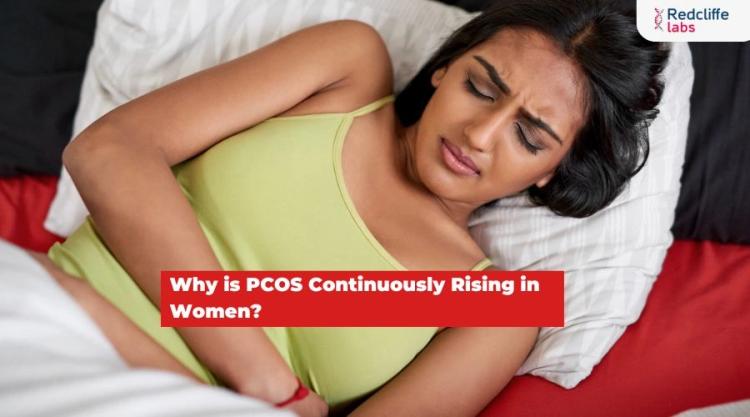What’s The Best Time Of Day To Drink Coffee?

Medically Reviewed By
Dr. Ragiinii Sharma
Written By Muskan Taneja
on Jul 22, 2024
Last Edit Made By Muskan Taneja
on Jul 19, 2025

Coffee is the second-largest beverage consumed in India, with 53% of Indians drinking it. Coffee contains caffeine, which stimulates the brain and nervous system. It has both positive and negative effects.
But how much coffee is normal in a day?
Studies show that four to five cups of coffee daily is normal for a healthy body.
The period in which you consume coffee influences your circadian rhythm. Our body follows a strict clock of when to sleep and wake up. This cycle is called circadian rhythm.
Have people ever suggested that you not drink coffee at night? There are several reasons for this. At night, caffeine in coffee can impact sleep patterns, stimulate hormones, and urge a sense of anxiety.
Let's discuss several debates on the best time of day to drink coffee.
Coffee and Cortisol
Coffee in the morning can stimulate hormone energy. As our cortisol levels (stress hormones) peak, having coffee as the first meal can hamper our body's hormones.
Cortisol controls our metabolism, enhances concentration, and builds the immune system. It follows a circadian rhythm. Excessive caffeine can impact our cortisol levels.
Normally, 4-5 cups of coffee is considered normal. For people who wake up around 6:30 AM, the best time to drink coffee is between 9:30 AM to 11:30 AM. However, no specific studies have found that drinking coffee immediately and delaying morning coffee has any adverse energizing effects.
Studies indicate that coffee's caffeine can increase hormone levels. Drinking coffee when cortisol levels are at their peak can cause heart problems. If you are willing enough, try delaying your coffee intake for a few hours after waking up; it will give you more energy.
Coffee and Circadian Rhythm
The circadian rhythm regulates your sleep patterns. It releases hormones that enhance your focus. Wherein, coffee contains caffeine which can affect your circadian rhythm. Your body clock can fluctuate because of coffee. If you have a habit of drinking coffee at night, try limiting it. Caffeine affects your hormones including adenosine receptors and melatonin.
Caffeine in coffee can interfere with your sleep if, consumed in the evening or at night. Your body produces adenosine receptors that promote sleep. However, caffeine makes it hard for you to sleep. It can affect your circadian rhythm.
Similar to adenosine receptors, melatonin regulates your sleep-wake cycle. Caffeine can slow the release of melatonin. This delayed shift can affect your circadian rhythms. Suppose, your sleep time is 10:00 PM, but, you have consumed coffee at night, there is a high probability that you might get sleep by 1:00 AM or even delayed. So, to keep your circadian rhythm stable, the best time of day to have coffee is in the morning.
To prevent this situation, healthcare professionals recommend:
- Avoid caffeine at night or six hours before sleeping.
- Limit overall caffeine intake.
- Know your tolerance and sensitivity to caffeine.
- Stick to a sleep-wake schedule, practice hygiene, and explore more natural light to minimize fluctuations in the circadian rhythm.
Coffee can Boost Endurance.
Coffee contains caffeine, which provides immense energy. Gym enthusiasts generally prefer it, and they suggest taking coffee as a pre-workout supplement. Caffeine can increase concentration and promote effective energy for exercise. Moreover, it is cheaper than other caffeine available in pre-workout supplements.
Studies showcase that caffeine can delay exercise fatigue and promote muscle strength. There is no major difference in whether you choose caffeine several hours after exercise or just after waking up. As a result, exercise performance is completely time-dependent. Dieticians suggest that the best time to have coffee is 30-60 minutes before exercise.
For workout enthusiasts, an effective dose of caffeine is 3-6 mg per Kg of body weight. For a 68-kg weighted person, 2-4 cups of coffee is best.
Coffee Can Impact Sleep Pattern
Coffee promotes sleeping problems and creates anxiety in some people. The caffeine in coffee lasts 3-5 hours, and depending on several factors, caffeine can remain in the body even after 5 hours in some individuals.
This is one of the reasons that drinking coffee at night is not recommended before sleeping. Coffee effects can cause sleeping problems, which can further lead to insomnia, anxiety, and depression.
Nutritionists recommend caffeine intake 6 hours before bed. If you already have anxiety, limit or avoid drinking coffee in the morning on an empty stomach or after. Instead, opt for green tea. It contains amino L-theanine, which can relax and calm an individual.
What’s The Best Time To Drink Coffee?
Coffee results vary based on individual growth, hormones, age, and preferences. After several research and studies, here are basic guidelines you can keep in mind while drinking coffee:
Mid-morning
For people who wake up around 6:30 or 7:00 AM, cortisol levels tend to be the highest. Wait for at least a couple of hours before consuming coffee. Have it around 9:30 to 11:30 AM; your cortisol levels will drop by then. It can allow coffee to work effectively in the body.
Afternoon
Nutritionists or dieticians recommend avoiding coffee at night. It can affect our sleep and lead to anxiety. If you crave coffee, have it in the afternoon after lunch. Remember to maintain a gap of 6 hours between having coffee and going to bed.
Pre-Workout
Gym enthusiasts prefer to have coffee before a workout or any physical activity. Immediate caffeine consumption could be more efficient. Take notes on having coffee around 30-60 minutes before physical activity.
Anxiety or Jitters
Caffeine can increase anxiety. It can create a sense of restlessness, jitters, anxiety, and even chronic depression. Coffee can also increase blood pressure. If you are anxious or sensitive to caffeine, you should avoid coffee. Focus on staying calm and focused.
Medical Emergency
Coffee can create medical conditions such as acid reflux, IBS, ulcers, and acid in the stomach. Its consumption can impact acidity in digestion. One should prefer contacting a doctor to save any severe medical condition. Timely and quality consumption can prevent major medical problems.
Expert’s Take
Every expert has a different theory. The timings are different based on an individual’s criteria. Here is what some experts say:
Coffee in the morning increases cortisol levels and can make you feel weird and anxious, whereas coffee at night can affect metabolism and slumber.
A suitable time for coffee is between 9:30 AM to 11:00 AM. However, there is no ‘best time’ to drink coffee. This time lies in between, which can prevent the stimulation of body hormones and allow coffee benefits.

How Soon After Waking Should You Drink Coffee?
Timing completely depends on one’s personality and lifestyle. Normally, waiting for a minimum of 30-60 minutes after waking up before consuming coffee is recommended. Some people follow a 90-minute rule.
What is the 90-minute rule? The 90-minute rule is a theory given by Dr. Andrew Huberman. According to his theory, the best time of the day to drink coffee is 90 minutes after waking up. A significant reason is your cortisol (stress hormone) is at its peak during this hour. Coffee during peak cortisol levels can improve your productivity of the day. Along with productivity, coffee enhances focus, concentration, and cognitive function.
The recommended time to drink coffee is 90 minutes after waking up. Nonetheless, caffeine reacts differently in every individual. The best thing to do is to listen to your body’s tolerance and insensitivity.
How Much Coffee is Good For Health?
Studies show that up to 400 milligrams of caffeine daily is good for health. However, in some adults, caffeine can cause unpleasant side effects. This 400 milligrams of caffeine equals four cups of brewed coffee and 10 cans of cola.
Do you know? One teaspoon of powdered caffeine covers up to about 28 cups of coffee.
Researchers claim that caffeine in powder or liquid form can promote its toxic levels. Further, high levels of caffeine can cause health problems. Doctors advise adults and teenagers to be cautious with the intake of caffeine. Mixing alcohol and caffeine is probably the worst thing you can do. Remember, the best time of day to drink coffee is in the morning between 9:30 AM to 11:00 AM. You can have one cup of coffee during that time of the day.
Side Effects of Excessive Coffee
Four cups of coffee is enough in a day. But, more than that, it has side effects. If you are experiencing any one of the following side effects, limit your coffee intake:
- Nausea
- Insomnia
- Headache
- Irritation
- Nervousness
- Fast heartbeat
- Muscle tremors
- Frequent urination
- Inability to control urination
- Upset stomach

What’s The Best Time To Drink Coffee For Weight Loss?
There is no best time to drink coffee for weight loss because it doesn’t help. What you see on the internet is slightly true. Coffee contains low calories and fat-burning properties. It can be the right alternative for high-calorie drinks such as cola or shakes.
Black coffee with lemon helps burn excessive fat. Having coffee 30-40 minutes before your workout session can be beneficial. Moreover, you can mix coffee with protein powder, as protein takes more time to digest, which can keep you feeling full and promote weight loss.
Coffee doesn’t help with weight loss. However, choosing coffee as an alternative to high-fat drinks may help.
Bottom Line
‘Wake up and smell the coffee,’ you must have heard this saying. This is all fun and cool, but experts have the opposite theory. The best time to have coffee is 9:30 AM to 11:00 AM, as several researchers, experts, and scientists said. However, after different studies, having coffee on an empty stomach can create digestive issues. Before the situation worsens, consult a doctor.
FAQs
Ques1 What is the worst time to drink coffee?
Ans: The worst time to drink coffee is late afternoon or evening. Caffeine can imbalance sleep patterns.
Ques2- What is the best time to drink coffee to study?
Ans: The best time to drink coffee to study is mid-morning or early afternoon. During this time, it helps in boosting focus and concentration.
Ques3 Can I drink coffee in the morning on an empty stomach?
Ans: coffee on an empty stomach can cause gastrointestinal problems. It is better to have a light meal or snack before.
Ques4- When is the best time to drink coffee before or after a meal?
Ans: The best to drink coffee is after a meal. It can prevent digestive issues and aid in better nutrient absorption.
Ques5- What’s the best time to drink coffee?
Ans: 9:30 AM to 11:00 AM is the best time to drink coffee. It aligns your body’s natural energy functions and avoids sleep disruption.
Ques6- Can you drink coffee when pregnant?
Ans: Yes, you can. Remember to take 200-300 mg daily (1-2 cups); consult your doctor for personalized guidance.
Leave a comment
1 Comments
Neeta Man Singh
Jul 31, 2024 at 2:31 PM.
Is it okay to have dry fruits with coffee? Is instant coffee okay to use.
MyHealth Team
Aug 1, 2024 at 7:45 PM.
Yes, having dry fruits with coffee is generally fine. Instant coffee is also okay to use, but try to limit its intake if it’s high in added sugars or if you consume a lot of caffeine. A balanced approach to both coffee and dry fruits can be part of a healthy diet.



